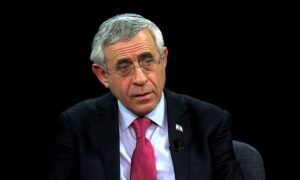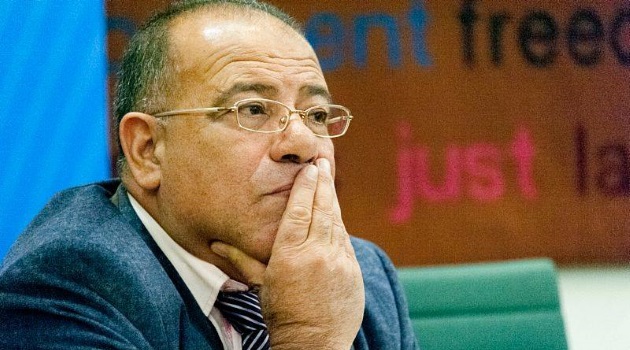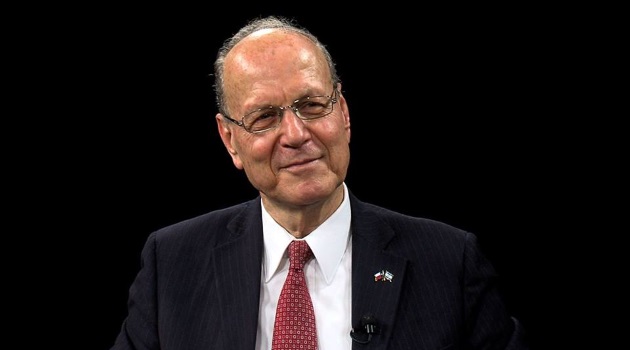A regular guest at L’Informale, Daniel Pipes, one of the foremost Middle East analysts and president of The Middle East Forum, has answered our questions regarding the recent Israel-Hamas agreement.
Did the Hamas-Israel agreement of Jan. 15 take you by surprise?
Very much so. First, Prime Minister Benjamin Netanyahu’s repeated assertions of victory made clear his intention to destroy Hamas, not negotiate with it. Second, President-elect’s Donald Trump’s threat that “all hell will break loose in the Middle East” if Israeli hostages were not returned by Jan. 20, seemed to be directed only at Hamas. To my surprise, it also included Israel.
You have called the agreement “horrific”, why?
Because it rewards the capture of hostages. Hundreds of murderers will be let free and jihadi groups have new incentive to take more hostages. More broadly, it reveals Western weakness and buoys Islamist ambitions.
You also wrote that Netanyahu “fears Donald Trump” and speculated that this accounts for his reluctantly accepting the deal. Why should Netanyahu fear Trump?
Netanyahu has experienced both Trump’s support (think the Abraham Accords) and his rage (for congratulating Joe Biden in 2020 on his election win). Knowing Trump’s volatility and fickleness, Netanyahu must not irritate the returning president. No other foreign leader feels a comparable pressure.
In September, Trump declared Qatar’s emir “strongly wants peace in the Middle East.” In November, the Jewish Insider exposed the close ties to Qatar of Steven Witkoff, Trump’s choice for Middle East envoy. What do you make of this?
The tiny but fabulously wealthy Qatar regime has for thirty years brilliantly pursued influence for itself and the Islamist cause through funding, diplomacy, and public relations. Think U.S. university curricula, major non-NATO ally status, and the 2022 World Cup. It has also worked hard to reach Trump’s inner circle, including Steven Witkoff. Witkoff’s uncouth and insolent treatment of Netanyahu, as reported in Ha’aretz and the Wall Street Journal, “appears to have saved Hamas,” writes Daniel Greenfield. I add: thus enabling it to massacre another day.
Based on his first administration’s record, many supporters of Israel welcomed the re-election of Donald Trump. Is their welcome misplaced?
Hard to say. Trump engages in a double pander, giving both his pro-Israel and his Islamist constituencies what they most want. Former New Jersey Gov. Chris Christie invented this trick but few until now have dared to follow him. It appears that Trump will triangulate to win the combined maximum accolades he can from both sides of the Israel issue, something he did not attempt to do during his first term, regardless of the consequences. Whether friends of Israel will be pleased four years from now, I cannot predict.
Responding to the first Hamas-Israel agreement in November 2023, you told Informale that the outcome of the war would likely be a “half–failure” for Israel. Are you still of that opinion?
Yes, that turns out to be a good description. On the positive side, Israel has succeeded against Hezbollah and Iran, leading to the collapse of the Assad regime in Syria. On the negative side, Hamas remains extant, the Houthis continue to attack, and worldwide public opinion has turned sharply negative toward Israel and Jews more broadly.
Netanyahu insists that the blows Israel administered to Hamas, Hezbollah and Iran, followed by the fall of the Assad regime, has changed the face of the Middle East. Is this braggadocio?
Those accomplishments are real. But, as I just outlined, negative development balance them, leading to that half-failure.
Victory in war means that the enemy is defeated and gives up on his goals. But Hamas remains in Gaza, Hezbollah in Lebanon, the Houthis in Yemen, and Islamic Republic in Iran. Given Israel’s military superiority, is it incapable or unwilling to deliver a fatal blow to its enemies?
Israel does not need to defeat Hezbollah, Houthis, and Iran; robust deterrence suffices. Hamas is another matter. Israel can defeat it but lacks the understanding. Why? I argue in my 2024 book, Israel Victory: How Zionists Win Acceptance and Palestinians Get Liberated that a pattern of conciliation going back to the very origins of Zionism in the 1880s remains remarkably unchanged despite profound differences in circumstance.




















































